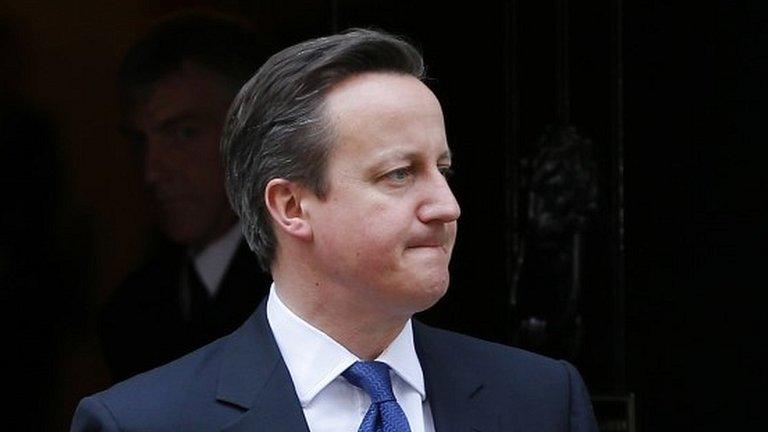Greensill: Cameron lobbying review may not change much
- Published
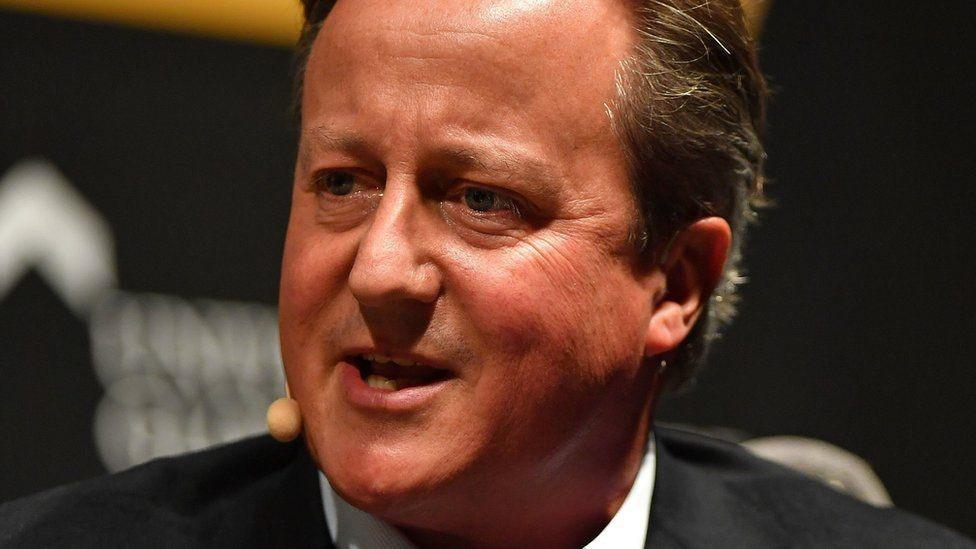
A Review into the Development and Use of Supply Chain Finance (and associated schemes) related to Greensill Capital in Government. It does not exactly sound like a page turner.
And despite the crescendo of headlines about the former prime minister's behaviour in the last few weeks, the investigation that is meant to find out exactly what went on is not intended to be a blockbuster either.
Let us remember first the broad outlines of what we already know happened. Lex Greensill, whose bank has just collapsed, was revealed to have worked as an adviser to government at the behest of the country's then most senior mandarin, Lord Heywood, who has since died.
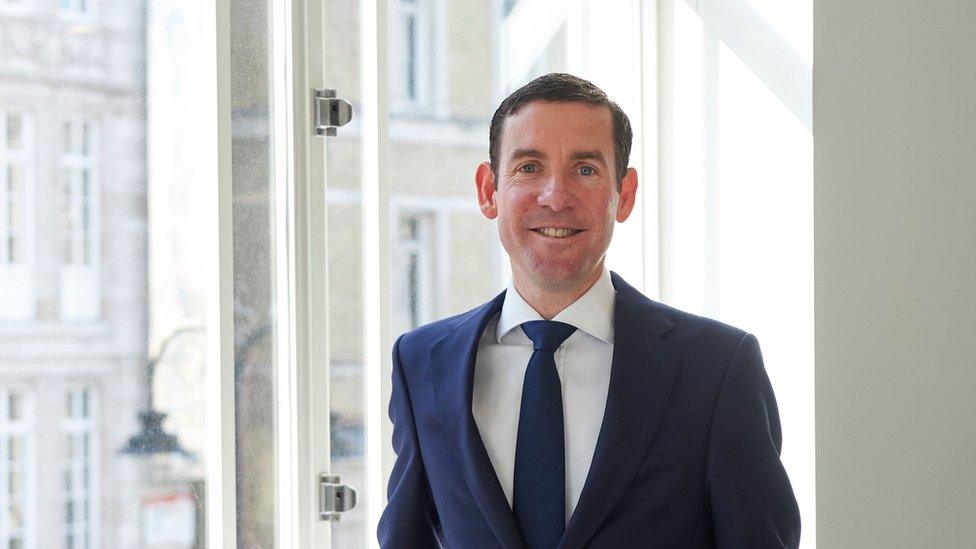
Lex Greensill was an unpaid government adviser
Sources working in Whitehall at that time acknowledge that Greensill had a desk in government and was someone whose ideas were listened to, but reject the notion that he was a central figure. One source told me he was "one of many people having bright ideas who were given a little bit of air time".
Although his business card, styling himself as a senior adviser to the prime minister implies he was slightly more than that, David Cameron says he met him only twice.
But his work did have an impact, helping to convince the government to get involved in what is known as supply chain finance, helping small and medium sized business get their hands on money owed to them and making it easier for them to get credit, with this announcement back in 2012., external
And given what journalists have dug up in the last few weeks and what has been leaked, clearly not everyone in Whitehall was happy about his presence, however significant it really was.
What is more troublesome is what happened much later, when David Cameron and Lex Greensill's roles were reversed - when the former prime minister became the adviser, and Greensill the boss.
In embarrassing detail over a few weeks, it's been reported that David Cameron appealed to former colleagues on the bank's behalf at the start of the pandemic, sending texts to the chancellor, and emailing officials.
And some months before, arranging private drinks with the health secretary and meetings with other senior NHS officials about an app to help NHS staff manage their pay.
There is nothing wrong with suggesting ideas to the government, or trying to change ministers' minds. Charities, unions, campaign groups, and individuals do it all the time.
But, because decisions made in Whitehall affect millions of us and cost billions of pounds, contacts and conversations are meant to be properly and transparently done, so the public can be sure that everything is above board.
In other words, decisions that could involve millions of pounds of public money aren't meant to be made over a few Whatsapps or texts between old mates.
One of those who the former prime minister tried to lobby told me, "it was classic casual Cameron" but was adamant that ministers did the right thing and channelled his requests back to official routes. "We didn't give him what he wanted" one said.
True enough, Greensill was not allowed to be involved in the catchily titled Covid Corporate Financing Facility, the Treasury and Bank of England emergency loan scheme. But the business was able to take part in a different scheme through the government owned, but separately run, British Business Bank.
After weeks of silence, perhaps hoping it would go away, David Cameron issued a very long statement on Sunday night, almost (but not quite) apologising for how he went about his business, acknowledging that it would have been better to be more formal.
His allies suggest that he was genuinely trying to help at a time of crisis when the government was scrambling to help business. They reject too the notion that Mr Cameron should somehow have known that Greensill was already in trouble as the recent collapse now suggests.
He was not on the board of the company, and could not therefore, it is suggested, have understood the depth of the problems.
Mr Cameron has not answered, however, some of the other remaining questions, such as how much was he being paid and on what terms? When did he really become aware of the extent of the problems at the business. Just how many conversations did he have, or try to have with his former colleagues about the business?
He has however tried to give his own answer to whether he broke any of the lobbying rules - his own verdict is, which won't surprise you, no. It is not exactly straightforward though.
The rules for former ministers and officials apply for two years after they leave government - David Cameron walked out of No 10 nearly five years ago.
And even so, the rules are advisory. Politicians can be publicly told off, but the organisation that administers the regulation does not have the power to impose any sanctions. One of those involved told me "you have to rely on a sense of shame and if they don't have any shame, what can you do?".
In fact, Boris Johnson himself was rapped on the knuckles for failing even to consult the rule book before going back to his newspaper column after he quit as Foreign Secretary.
The rules for full time professional lobbyists apply to external consultants, not those actually on company pay rolls as Cameron was for Greensill.
The status of a former prime minister, a long time after they have left No 10, is particular and extremely unusual. Most of that tiny exclusive club have gone on to earn vast sums, but one of that tiny band, Gordon Brown, on Monday questioned whether they should ever be allowed to lobby for commercial reasons at all.
However, if you hope that the review that is meant to clear up what happened in this instance will propose some big crackdown, forget it. Just like the organisation that provides rules for former ministers, it has no power of sanction, no statutory, or legal force.
Sources suggests its remit is to find out narrowly what happened with Cameron and Greensill, not to start a conversation about the rights and wrongs of lobbying, let alone to propose a new system.
That is not to cast aspersions either on the ability of the senior lawyer who will carry out the work, who may well turn up more interesting nuggets.
He'll report by the end of June, and has been promised access to the information he needs. But the remit is tightly drawn, suggesting little appetite in government for a big rethink of the landscape.
Downing Street insists the prime minster understands the significant public interest and wants to look at the issues raised and get more details.
While there is no love lost between Boris Johnson and David Cameron, and it is pretty much impossible to think of a similar case where a serving PM commissions an investigation into one of his predecessors, Labour is already warning that it could be a "Conservative cover up".
Despite that rather dramatic language, do not forget there are questions that remain for current government figures about conversations they had with Cameron and Greensill.
And it's worth a small wager that in the coming days ministers will thank their opponents kindly for their questions as they will no doubt continue to ask them, but refer to the "ongoing review" which makes it rather hard to comment.
The review into this mess may perhaps be designed to end a difficult conversation, just when it was getting going.
- Published9 August 2021
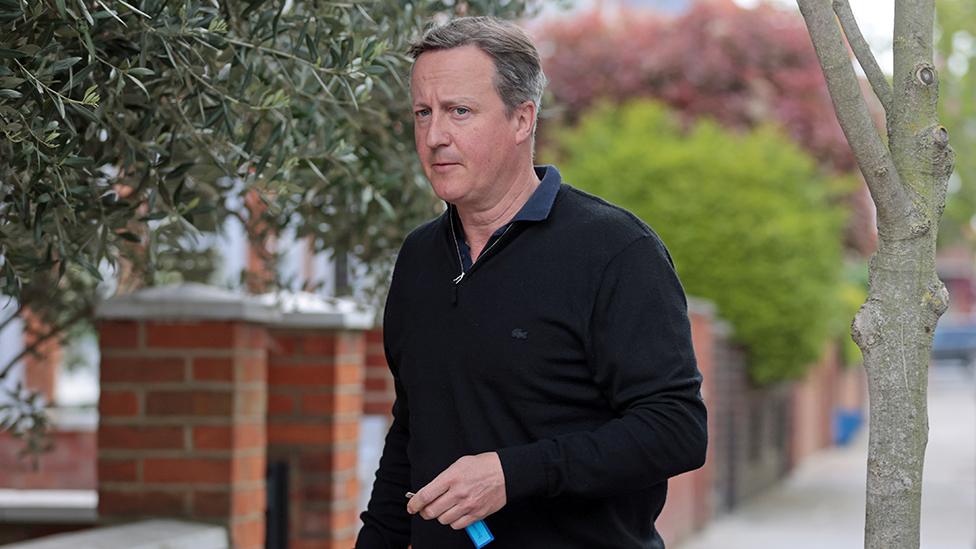
- Published12 April 2021
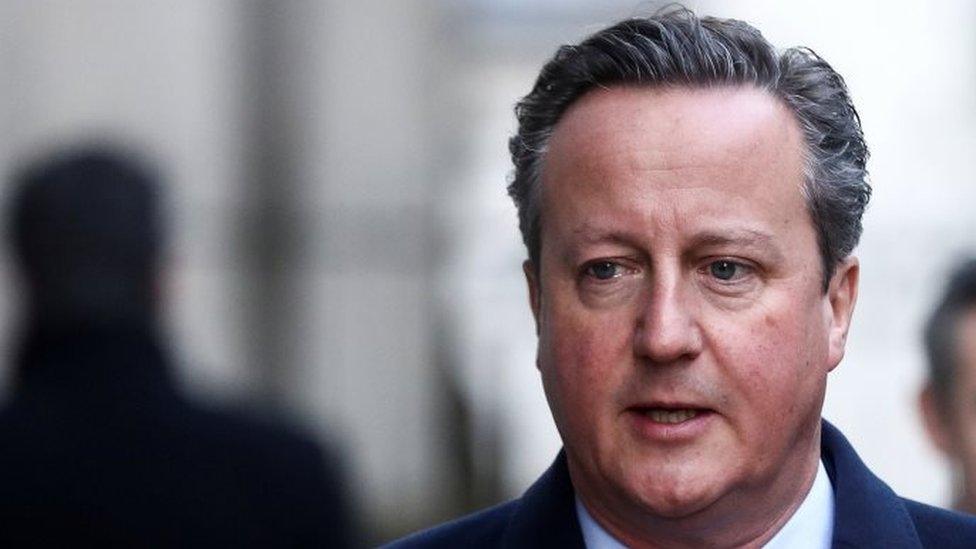
- Published12 April 2021
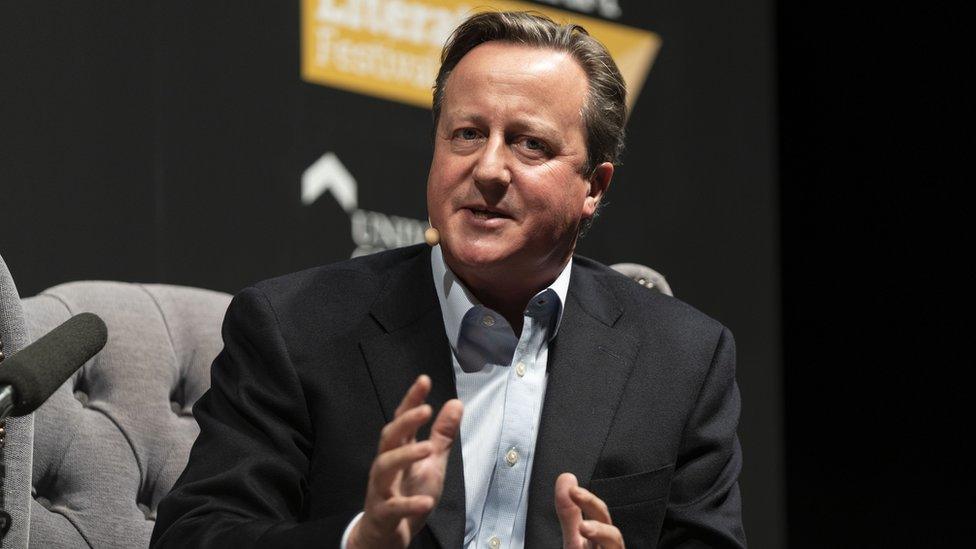
- Published12 April 2021
